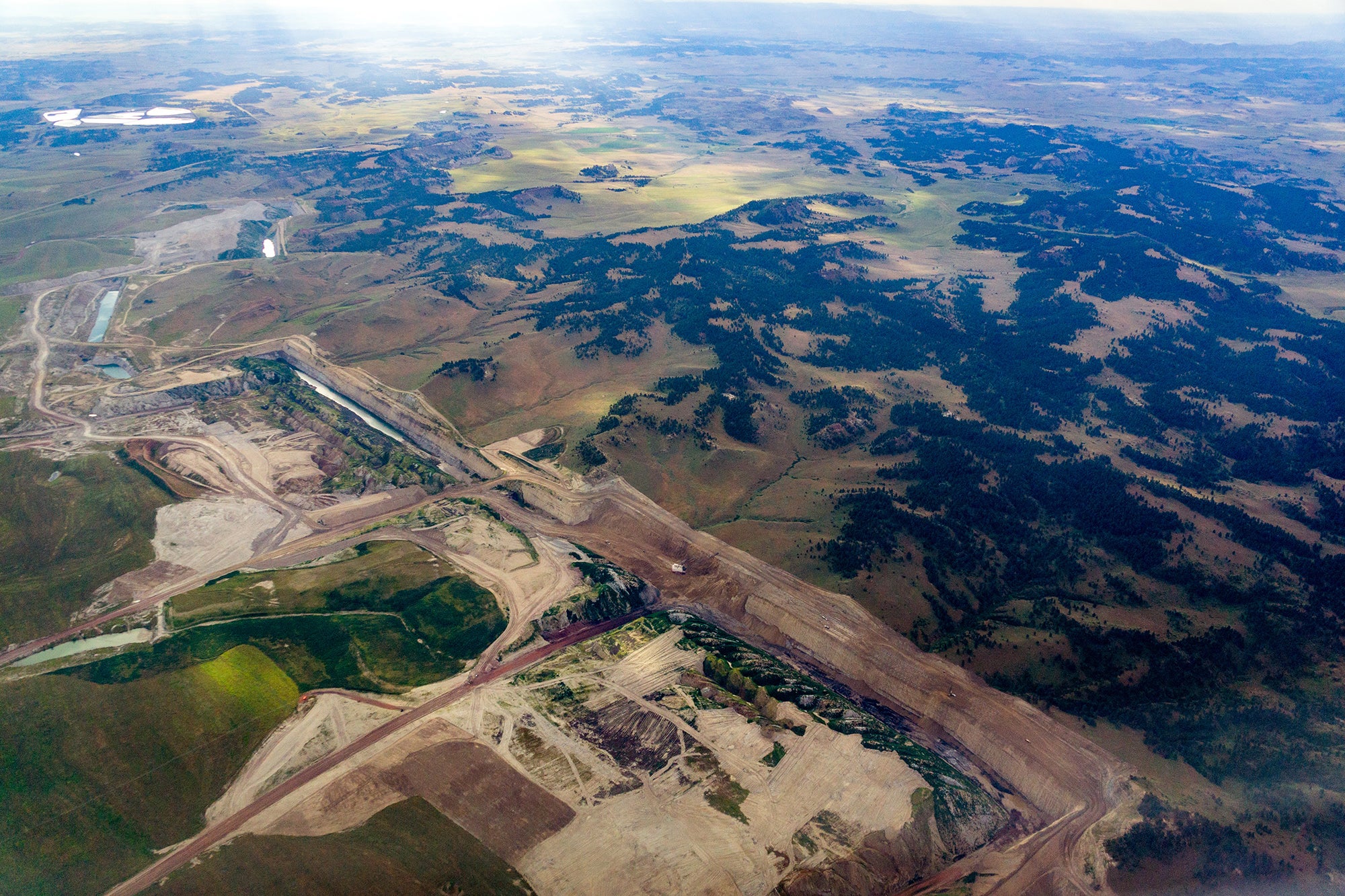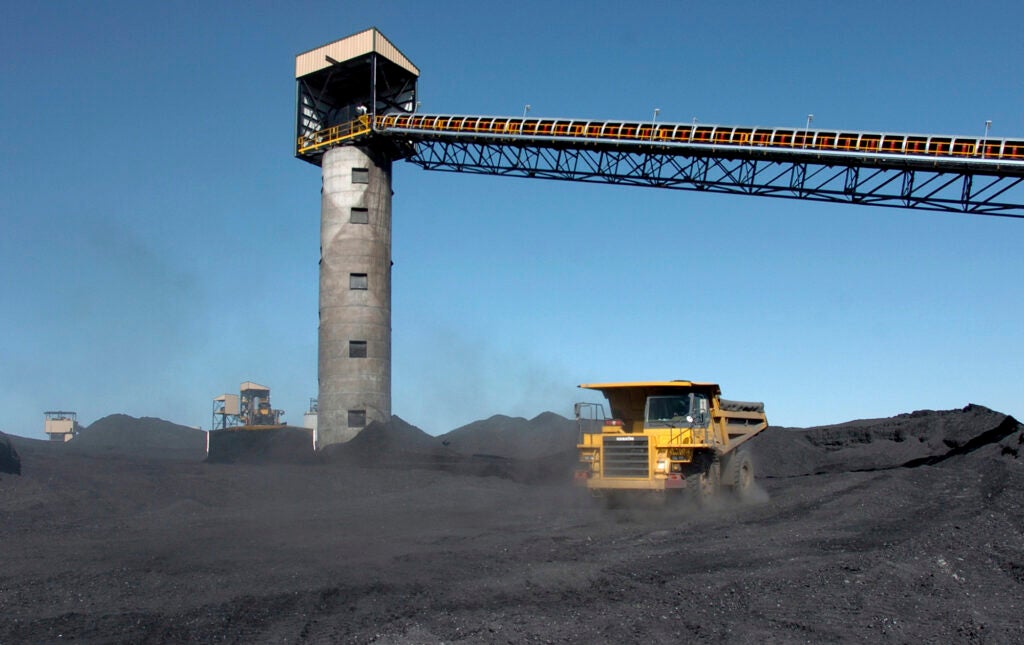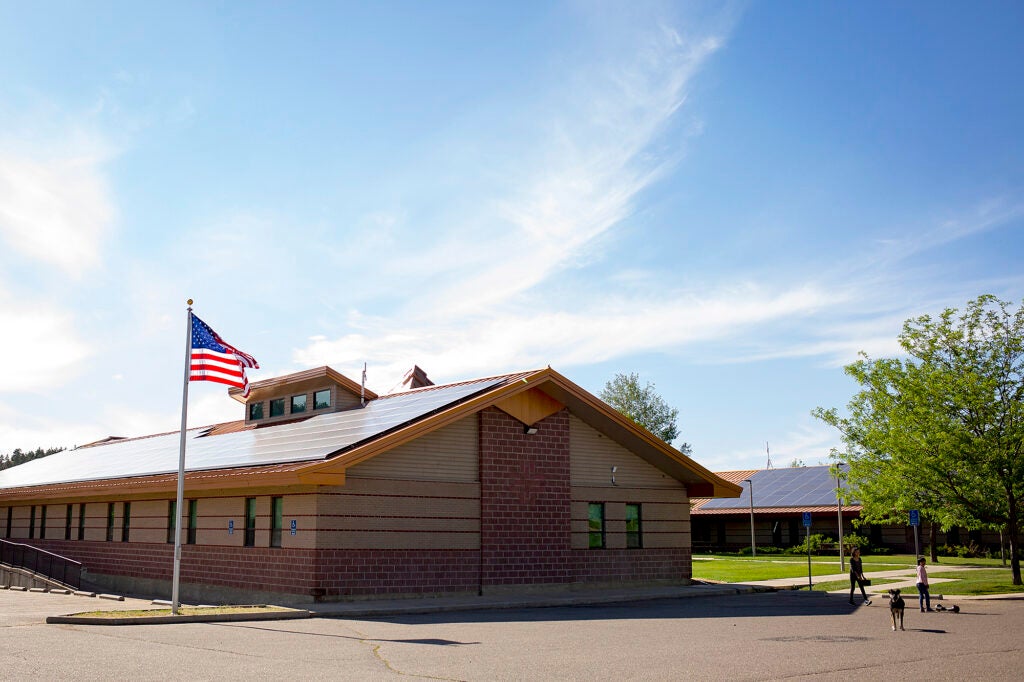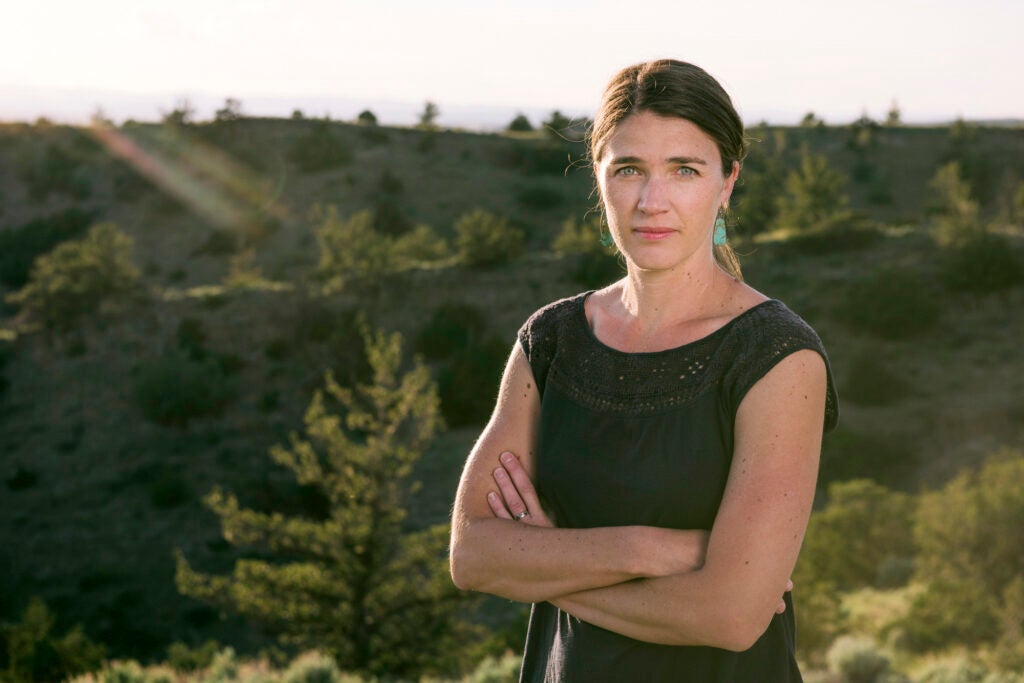Our Communities Can’t Afford More Coal Pollution, So We’re Going to Court
Coal is an expensive, dirty, and dangerous energy source. We're not going back to it.

The Northern Cheyenne Tribe, alongside tribal and conservation groups, has moved to intervene in a lawsuit that seeks to keep the coal industry alive at the expense of public health, clean air and water, and our changing climate.
Coal is an expensive, dirty, and dangerous energy source — but it’s made a handful of CEOs very, very wealthy. Now those CEOs have friends in the White House and lobbyists working alongside Trump appointees to keep the money flowing.
The longer the coal industry hangs on, the more harm it does to nearby communities, destroying our land, water and clean air, and jeopardizing our futures on a warming planet. Earthjustice will continue to fight shortsighted lawsuits that prioritize corporate profits over protections for the air we breathe and the water we drink.

Heavy equipment moves coal outside Signal Peak Energy’s Bull Mountain mine near Roundup, Montana. (Matthew Brown / AP)
Trump wants to keep coal alive — while we pay the price
In the United States, more than 43% percent of all domestic coal, and over 85% of federal coal, comes from the 13-million-acre Powder River Basin region in Montana and Wyoming – and that coal is terrible for human health. When the government assessed how coal leasing in the Powder River Basin affects the environment, it included a review of coal’s public health impacts. It confirmed what the science has long shown: pollution from burning coal contributes to heart and lung disease, cancer, preterm births and early death.
Two rounds of Earthjustice litigation resulted in a landmark 2024 decision by the Biden administration to end new coal leases on federally owned lands in the Powder River Basin, a commonsense step that will reduce the amount of coal pollution harming people and ecosystems. This policy change marked an historic, transformational shift in federal management of our country’s largest coal-producing region.
The Biden administration’s decision reflected an understanding of coal’s true costs. Pollution from coal-fired power plants kills and sicken tens of thousands of Americans every year. Coal also remains the energy sector’s largest contributor to climate change: In 2022, coal generated only 20% of U.S. electricity while producing 55% of the industry’s CO2 emissions. Before our nation committed to investing in clean renewable energy, the rate of death and illnesses from coal was much higher — and that rate will climb again if the Trump administration allows for new leasing in the Powder River Basin.
From day one, the Trump administration has been public about lining the pockets of wealthy fossil fuel CEOs. Trump’s entire “energy dominance” agenda is built on false claims of an energy emergency that read like industry lobby talking points. In reality, recent data show that clean energy sources are more affordable than coal, making them a reliable choice for our future.
What’s more, clean and renewable energy could replace the nation’s remaining, aging coal plants without generating the air, water, and climate pollution caused by coal mining. However, even though they have tremendous health and environmental costs, fossil fuel power plants are profitable for utilities — and their investors. Coal will not go away on its own, especially not with Trump and congressional Republicans, who are vocal friends of fossil fuel executives.

Solar panels cover the roof of the Little Wolf Capitol Building, the Northern Cheyenne tribal headquarters, in Lame Deer, Montana. (Tailyr Irvine / The New York Times / Redux )
Frontline communities bear the brunt, again
The Northern Cheyenne Reservation is within in the Powder River Basin and surrounded by coal mines. But the Tribe has chosen not to develop the significant coal deposits within Reservation boundaries. In fact, the Tribe has been outspoken against continued coal mining near its Reservation for decades. Tribal members face health threats from air polluted by coal mining and burning near the Reservation and runoff that impairs its water quality.
Within the Tribe’s ancestral homelands, mining has already destroyed important cultural sites, including those used for Cheyenne ceremonies. Mining has also ruined important wildlife habitat, which further imperils sensitive species, such as burrowing owls, prairie dogs, prairie chickens, and sage grouse. The Tribe is working to develop renewable energy on its Reservation that could avoid such harmful impacts and has urged the federal government to support it in those efforts.
Since the 1970s, the Tribe has litigated to safeguard its lands and way of life from coal pollution. Now it is intervening in a lawsuit brought by the states of Montana and Wyoming seeking to reopen the Powder River Basin to new leases. The Tribe, along with tribal and conservation organizations, are arguing that the end to new coal leasing is lawful and should remain in place, for the health of the Northern Cheyenne nation and all who rely on the region’s clean air and water.

Jenny Harbine, Earthjustice’s managing attorney of the Northern Rockies regional office, photographed in Livingston, Montana. Harbine is working stop stop fossil fuel development in the western United States, including fighting fracking, coal mining and coal buring. (Eric Ian for Earthjustice)
We’re not going back to coal
The Biden administration made the right decision to end coal leasing in the Powder River Basin and Earthjustice will vigorously defend against any attempt to undo this decision. We’re also fighting every step of the way to prevent the Trump administration from prioritizing an outdated, highly polluting industry over the lives of people who live near coal mines and power plants.
In addition to our Powder River Basin intervention, we’re also challenging mine expansions in Montana and holding mine owners accountable for polluting air and water. As a result of Earthjustice’s successful litigation, federal mine regulators are re-evaluating the health and environmental impacts of two large expansions for Montana’s Rosebud and Bull Mountains mines. We will continue to hold the Trump administration accountable for upholding and following laws that protect people from coal’s harmful impacts.
With decades of experience under our belt, we’re using the power of the law to end coal mining once and for all and move onto clean energy. The federal government cannot be allowed to lease away our public lands to coal companies while ignoring the significant health and climate impacts.
Established in 1993, Earthjustice's Northern Rockies Office, located in Bozeman, Mont., protects the region's irreplaceable natural resources by safeguarding sensitive wildlife species and their habitats and challenging harmful coal and industrial gas developments.